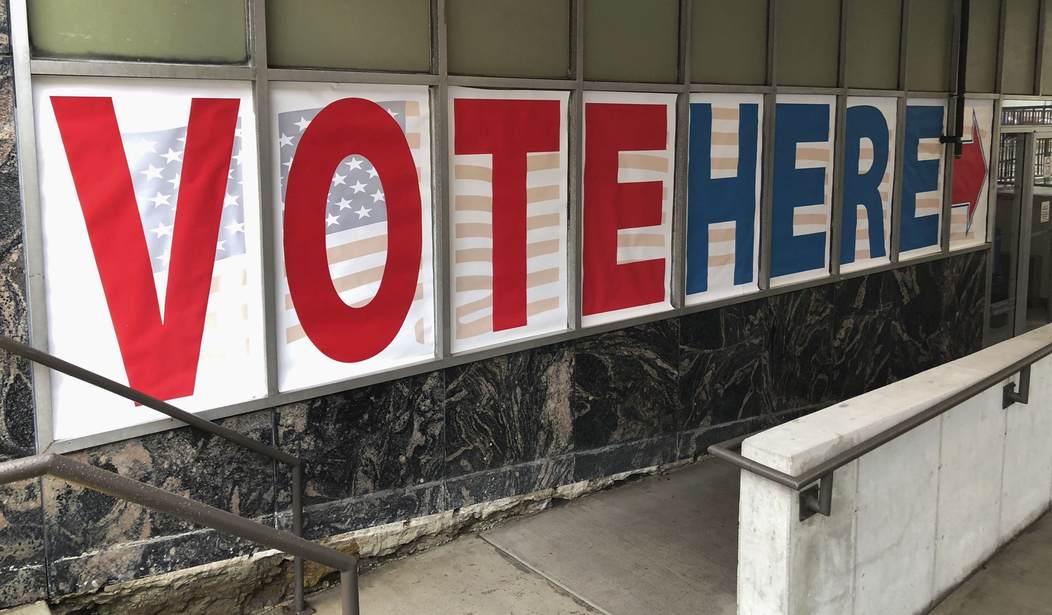Given the many irregularities and improprieties in the 2020 elections, it is no surprise that one of the greatest concerns voters have heading into this presidential election year is ballot integrity. Voters simply want to be confident that when they cast their ballot it will be counted correctly. While many states have adopted new election integrity reforms to address these concerns, far-left progressives are pushing a radical election scheme which has been described as a weird, convoluted, and complicated voter suppression tool called Ranked-Choice Voting (RCV).
While there is plenty of anecdotal evidence RCV hurts minority voters, a new study finds hard evidence RCV disenfranchises minority voters by eliminating their ballots at a higher rate than those of non-minority voters.
Under RCV, voters rank candidates by preference on their ballots. While the concept may sound appealing, the intricate process of eliminating candidates and reallocating votes can be confusing. This complexity, compounded by the sheer number of candidates in some races, poses a risk to the fundamental principles of fair and transparent elections.
The Center for Election Confidence, driven by its mission to promote trust in the electoral process, commissioned a first-of-its-kind study, led by Princeton Professor Nolan McCarty. The study, titled "Minority Electorates and Ranked Choice Voting," focuses on the impact of RCV on minority voters.
Significantly, Dr. McCarty's research is the first statistical study of the impact of RCV on minority participation. The study is the first step toward proving, in a manner admissible in court, that RCV has a disparate impact on minority voters in possible violation of federal law.
When RCV was first introduced, concerns surfaced anecdotally about its negative impact on minority and disadvantaged voters. Dr. McCarty's study, however, is groundbreaking in providing concrete evidence of these negative effects. The research demonstrates that the adoption of RCV poses a real risk to voter confidence in the fairness of elections.
Recommended
The study scrutinizes the results of two RCV elections, including the New York City Democratic Primary elections in 2021 and the 2022 elections in Alaska. Analyzing micro-data on cast vote records and demographic records of primary voters, Dr. McCarty found that districts with significant minority populations had substantially more “exhausted”, and therefore discarded, ballots than others. This should concern every American who wants a fair and open election.
This new study adds to the growing body of evidence indicating that RCV hurts minority voters in possible violation of federal law. A 2020 study by Dr. McCarty found that across 95 municipal RCV elections, the average rate of exhausted and therefore discarded ballots was 10.5%. In six of these elections, the percentage of exhausted ballots exceeded the margin between the final two candidates, suggesting that the results might have changed if there were fewer eliminated ballots. The correlation shown in the current study between a precinct’s racial composition and its proportion of exhausted ballots further emphasizes the disproportionate impact on minority communities, particularly when there are numerous candidates on the ballot.
The complexity of RCV also manifests in practical challenges during elections. Numerous examples across the country showcase complications and delays, leading to confusion among voters and even misdeclarations of winners. In an Oakland, California school board race, counting the votes using RCV led to the wrong candidate being declared the winner.
Arlington County, Virginia experimented with RCV during a recent Democratic primary but decided against utilizing RCV in the general election due to concerns about vote tabulation confusion. The potential suppression of minority votes, as observed in the smaller-than-expected turnout from minority groups during the primary, further underscores the need for a careful reevaluation of RCV.
Given the danger RCV poses to election integrity, it is troubling that RCV continues to gain ground. Currently adopted in 51 jurisdictions, including three states – Maine, Hawaii, and Alaska – and being considered by 11 more states, the push for RCV is both persistent and widespread. Five states have banned RCV, however, and two more are considering bills to do the same, indicating a growing bipartisan pushback.
The bottom line is clear. While the scholarly examination of RCV is in its infancy, Dr. McCarty's study serves as a crucial step toward understanding its impact on minority participation. As concerns grow and bipartisan resistance to RCV strengthens, Americans must question why far-left progressives are fervently advocating for a system that, according to this research, disproportionately diminishes the voices of minority voters.
As we navigate the future of our electoral system, it is crucial to prioritize inclusivity and fairness to ensure that every American's voice is heard and respected.
Attorney Sara Frankenstein serves on the Board of the Center for Election Confidence (formerly the Lawyers Democracy Fund).

























Join the conversation as a VIP Member